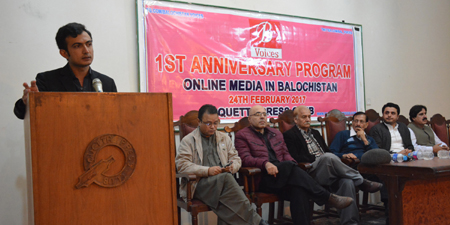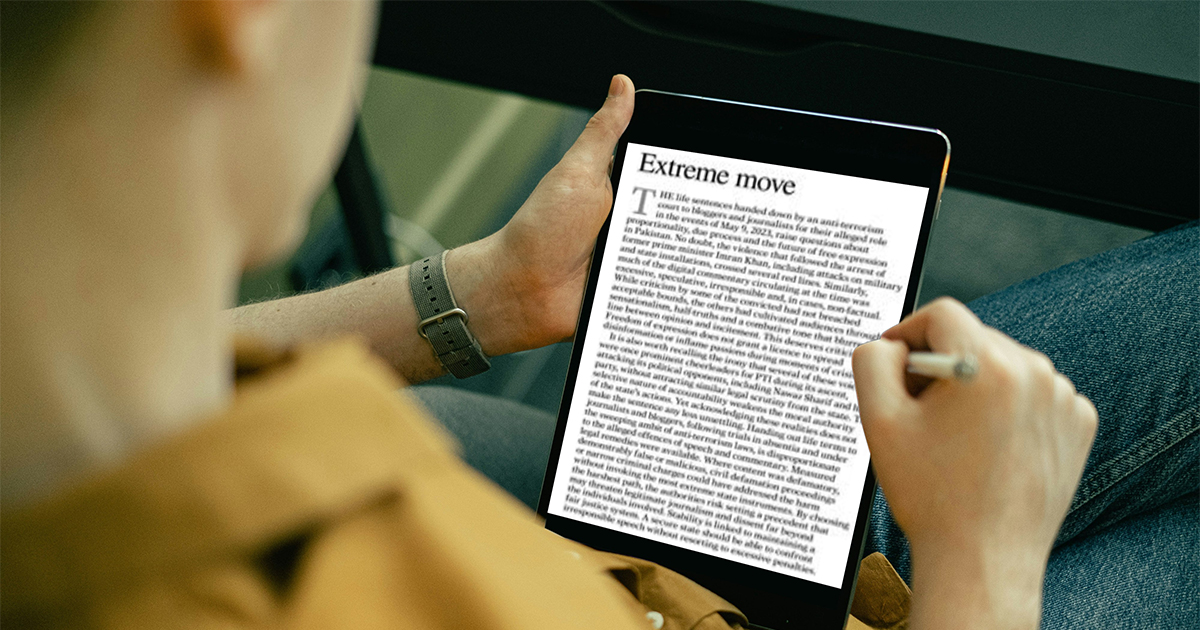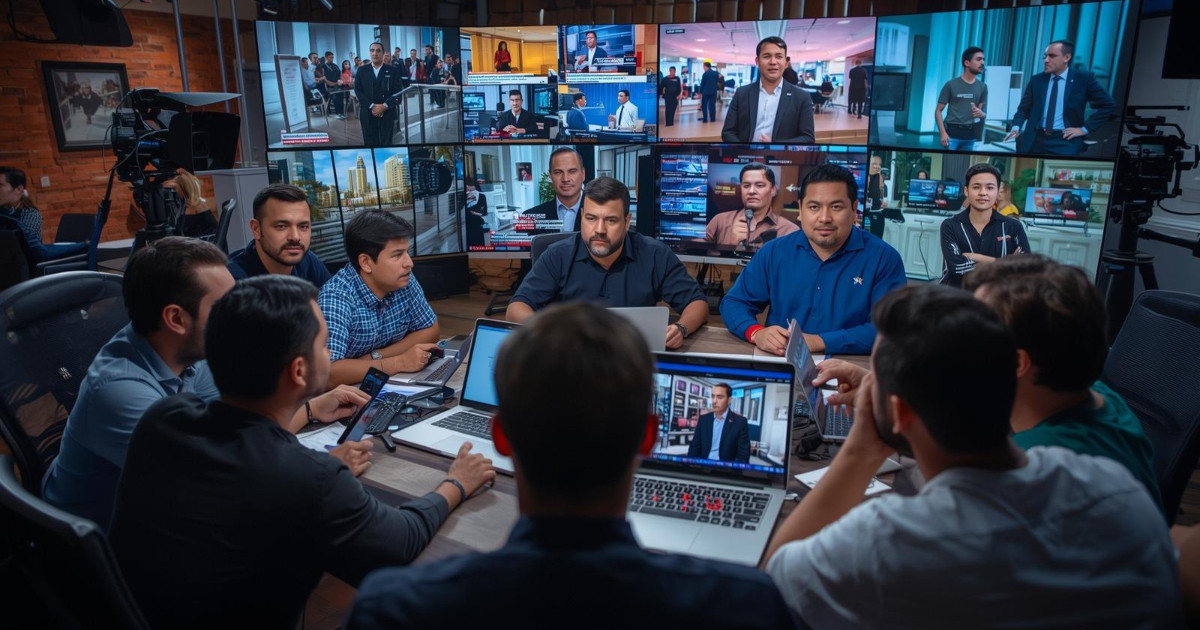Balochistan Voices celebrates its first birthday
JournalismPakistan.com | Published: 25 February 2017 | Adnan Aamir
Join our WhatsApp channel
Balochistan Voices marked its first birthday with an event at the Quetta Press Club. Various speakers emphasized the importance of online media for societal awareness and change.Summary
QUETTA – The first anniversary of Balochistan Voices was celebrated at the Quetta Press Club, Friday.
The online paper was launched on February 20 last year. Jan Achakzai, Special Assistant to Chief Minister Balochistan on media was the chief guest at the ceremony.
He said he was lobbying at different government platforms to develop a mechanism to financially support online newspapers. Being a journalist previously, he assured the participants he would do his best to help and facilitate online media in Balochistan.
“Balochistan is on a journey of digitalization and the online newspapers such as Balochistan Voices are a step in that direction.”
Asfandyar Khan, Project Director of ‘Global Partnership of Education – Balochistan Education Project’ said that there must be integration between media, civil society and government to highlight issues and to work for their solutions.
Mahfooz Ali Khan, former Secretary Finance of Balochistan, appreciated Balochistan Voices for doing research and investigative journalism. “This newspaper is educating the people about how the province has been deprived by the rulers over time,” said Khan who also contributes for Balochistan Voices.
Saleem Shahid, Bureau Chief of Dawn and a veteran Journalist, also appreciated the efforts of the Balochistan Voices team “because they are contributing with positive approach and there are no questions on their credibility. I often take leads from Balochistan Voices for my own stories.”
Irfan Saeed, Bureau Chief of Dunya News said he was proud of the youth who raise voice for different issues of the province. “We will do our best to support tour youth.”
Hammadullah Siapad, former President of Balochistan Union of Journalists (BUJ) said that media is the fourth pillar of the state and we all have to work to make it successful. “We will do our best to help the online journalistic community in all possible ways.”
Ali Arqam, a Karachi-based reporter of Newsline, said: “I appreciate team of Balochistan Voices for informing people of rest of Pakistan about ignored issues of Balochistan.”
Gul Khan Naseer, Head of Program of Azat Foundation, said that establishment of Balochistan Voices had ushered in an era of competition in online media in Pakistan. “Online media has proved to be an important source of information for everyone including the development sector,” he added.
Adnan Aamir, Editor of Balochistan Voices, thanked all the guests and participants for attending the first anniversary program. He said “appreciation from our readers and seniors keeps us going.”
Explaining the working of Balochistan Voices, he said: “We have a team of volunteers who collect and contribute news stories from different districts of Balochistan and those are published at Balochistan Voices and shared on social media.”
He added that Balochistan Voices was created to ensure that all articles written by people of Balochistan on genuine issues must get publishing space.
“A mechanism must be developed to register and regulate the online newspapers in Pakistan so that the people who are serious in this field can be separated from those who want to misuse it,” he suggested.
Hamayoun Kasai a media development professional, Abdullah Shahwani President of Khuzdar Press Club and Hameeda Noor from Civil Society Balochistan also spoke on the occasion.
People from media, academia, literature, civil services and development sector attended the event and appreciated Balochistan Voices for its efforts.
Sami Zarkoon moderated the program while Advocate Imran Baloch delivered the vote of thanks.
KEY POINTS:
- Balochistan Voices launched on February 20 last year.
- Jan Achakzai discussed government support for online newspapers.
- Media experts praised the contributions of Balochistan Voices.
- A call for integration between media and civil society was made.
- The event featured various stakeholders from different sectors.

























